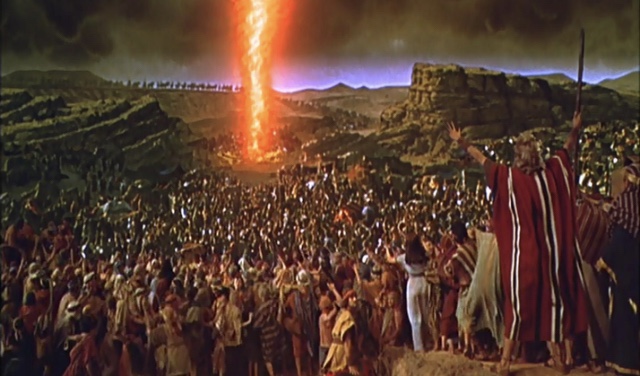Author’s note: How do I come up with topics every week? Most often, like this week, I write the title of the article weeks ahead of time and give it a prefix number. Then, when the week arrives, I address what I wrote down, expecting to recall what I was thinking since I usually do not write any accompanying notes and rely on recalling what triggered the subject.
I enjoy writing. I’ve tried to write about many subjects since I’ve started blogging in 2013. It turns out writing about my Lord and Savior Jesus Christ and the gospel is something that is universally relevant and I can only hope you think so also, there is a great need to help clarify the Biblical perspective. I need to fit the time to write in around busy work and family responsibilities but I do enjoy writing about God and Christ – it’s personal, it’s critically important, and those aspects help me as a writer enormously.
On the falling edge of 9-11, if anything, your awareness that life cannot be taken for granted, I pray that you re-consider your eternal destiny and relationship with God and take the time to learn about the promises He has made and the blessings that He is providing you despite any self-righteousness that may be holding you back.
I am trying to present the Biblical perspective and what I believe is truth and you are free to make your own assessments, to keep on reading or to silence me from your feed. If the average Christian church clearly taught what I am writing, then I, some virtually unknown blogger in an inconspicuous corner of the internet, would not find the compelling desire to write with a focus on Christ’s exhortation about the Narrow Way.
This week’s subject “The Different Laws of God” causes me to consider a couple of differences. One I’ve written about before, the physical laws (the laws of nature) which are pliable in the hands of God (hence how miracles can be performed) and the spiritual or moral laws, which are immutable.
The other aspect of the “Different Laws” would be an explanation of the Ten Commandments. These are Laws also, the backbone of the morality based on God’s righteousness and holiness, that since the Fall of Mankind in the Garden has separated humanity from God.
I am not a scholar of the Bible, but I can find practical application to everything I read in it. With scholarly guidance, the meaning and context becomes more clear, often amazingly or shockingly clear.
My focus is the Narrow Way. How should I approach explaining God’s different Laws?
***

Image source: JonathanRosenbaum.net
The Ten Commandments were given by God through Moses to the Israelites. Though since it was God’s purpose from the beginning to reach out to all the world (i.e. Psalm 117:1–2, Romans 1:5), the Commandments are just as applicable to you and I as much as they were to the ancient Israelites who were on that desert journey.
The Israelites were chosen by God to be everything that the sin-ridden kingdoms of the world were not. Though chosen by God, like all humans, the Israelites fell short of the glory of God and are prone to error, just like you and me; hence, through the historical struggles of the Israelites, God’s eternal characteristics are further revealed in the writings recorded in the Old Testament. These attributes of God and the His promises in the New Testament are essential and have been extraordinarily preserved in holy Scripture for us today, preserved like no other document in history. Nothing else comes close.
God set forth to create a people, starkly separate in both morality and in cultural practices, while forbidding such things as human sacrifice as a means of atoning (making one right with God) for the wrongs people did, idol worship (bowing down to any physical manifestation either man made or natural), and sexual immorality.
There were hundreds of “laws” that dictated customs which also were meant to set the Israelites apart from the other peoples and these were mainly symbolic but often necessary for good hygiene. There were other laws that were significant because of the times of Moses, certain social practices needed to be addressed.
However, the Ten Commandments were given and these laws addressed the moral requirements of God to be righteous and holy.
The moral mandate of these laws have never changed except for the 4th Commandment, which has been symbolic for the Israelites, in regards to their separation from the Gentiles “To Keep the Sabbath Holy” (honoring God in His rest after Creation on the 7th Day). It is not a moral Law that any particular day be set apart nor that Christians be required to observe the Sabbath.
By comparison, the Church’s focus around the world (which includes all believers, Gentiles or not) has always been on the 1st Day of the Week, due to several major revelations by Christ. The first and foremost event was how Christ rose from the grave and defeated death on the “first day of the week”; therefore, the Church worships God through Christ on Sunday primarily in honored remembrance and gratitude for the grace of salvation.
The Ten Commandments are organized from top to bottom, beginning with the heavenly realm and then reaching down to the human level at its base. In the center is a pivotal law regarding parents which honors the family unit and provides God’s society with necessary structure, it is also the only Commandment with a promise.

***
The TEN COMMANDMENTS
From GENESIS 20:1-17
And God spoke all these words, saying:
2 “I am the Lord your God, who brought you out of the land of Egypt, out of the house of bondage.
3 “You shall have no other gods before Me.
4 “You shall not make for yourself a carved image—any likeness of anything that is in heaven above, or that is in the earth beneath, or that is in the water under the earth; 5 you shall not bow down to them nor serve them. For I, the Lord your God, am a jealous God, visiting[c] the iniquity of the fathers upon the children to the third and fourth generations of those who hate Me, 6 but showing mercy to thousands, to those who love Me and keep My commandments.
7 “You shall not take the name of the Lord your God in vain, for the Lord will not hold him guiltless who takes His name in vain.
8 “Remember the Sabbath day, to keep it holy. 9 Six days you shall labor and do all your work, 10 but the seventh day is the Sabbath of the Lord your God. In it you shall do no work: you, nor your son, nor your daughter, nor your male servant, nor your female servant, nor your cattle, nor your stranger who is within your gates. 11 For in six days the Lord made the heavens and the earth, the sea, and all that is in them, and rested the seventh day. Therefore the Lord blessed the Sabbath day and hallowed it.
12 “Honor your father and your mother, that your days may be long upon the land which the Lord your God is giving you.
13 “You shall not murder.
14 “You shall not commit adultery.
15 “You shall not steal.
16 “You shall not bear false witness against your neighbor.
17 “You shall not covet your neighbor’s house; you shall not covet your neighbor’s wife, nor his male servant, nor his female servant, nor his ox, nor his donkey, nor anything that is your neighbor’s.”
NOW, YOU MAY HAVE HEARD THESE BEFORE, and most people will assess and translate these Commandments of God with their own culture and societal operating systems in their heads. You must understand the holy, righteous, and sovereign nature of God which is extremely clear to anyone who study’s God’s Word in the Bible.
Here are some teachings from the words of Jesus Himself, exhorting you why we need to repent and trust the Savior, because deadly sin is on our record:
HAVE YOU EVER HATED SOMEONE
MATTHEW 5:21-22 21 “You have heard that it was said to those of old, ‘You shall not murder, and whoever murders will be in danger of the judgment.’ 22 But I say to you that whoever is angry with his brother without a cause shall be in danger of the judgment.”
1 JOHN 3:15 Whoever hates his brother is a murderer, and you know that no murderer has eternal life abiding in him.
HAVE YOU EVER LOOKED WITH LUST AT ANOTHER?
MATTHEW 5:27-28 27 “You have heard that it was said to those of old, ‘You shall not commit adultery.’ 28 But I say to you that whoever looks at a woman to lust for her has already committed adultery with her in his heart.”
HAVE YOU EVER LIED? or
HAVE YOU EVER WORSHIPPED ANYTHING AND PLACED IT ABOVE GOD?
REVELATION 21:8 “But the cowardly, unbelieving, abominable, murderers, sexually immoral, sorcerers, idolaters, and all liars shall have their part in the lake which burns with fire and brimstone, which is the second death.”
For the sake of brevity of this article I will stop these few exhortations, however, I want to leave a message of hope for those who will endure:
REVELATION 21:3b-4 “Behold, the tabernacle of God is with men, and He will dwell with them, and they shall be His people. God Himself will be with them and be their God. 4 And God will wipe away every tear from their eyes; there shall be no more death, nor sorrow, nor crying. There shall be no more pain, for the former things have passed away.”
REVELATION 21:6-7 6 And He said to me, “It is done! I am the Alpha and the Omega, the Beginning and the End. I will give of the fountain of the water of life freely to him who thirsts. 7 He who overcomes shall inherit all things, and I will be his God and he shall be My son.

With the Biblical Perspective, highlighting the Narrow Way
CKY
***
Copyright © 2023 ChallenYee.com All Rights Reserved
